COVID Heroes
As shutdown orders this spring closed businesses and schools and sent families indoors to slow the spread of the novel coronavirus, the Lafayette College community at home and afar rallied and spearheaded efforts to care for the vulnerable, provide for those in need, and contribute innovative solutions to improve the lives of others. Here, we celebrate the Lafayette heroes/helpers who have stepped up to serve.

Alumni working on the front lines of the health crisis
The Abington 7
Seven Lafayette grads work as physicians at Abington–Jefferson Health, a 600-bed hospital that serves the northern suburbs of Philadelphia:
Dr. Jason R. McLaughlin ’95, emergency medicine; Dr. Stephen Smith ’84, associate director, OB-GYN residency program; Dr. Heidi Caruso Commins ’94, emergency medicine; Dr. Kenneth Einhorn ’79, chief, otolaryngology division; Dr. Amy McNeal Mackey ’92, vice chair, department of obstetrics & gynecology, and director, OB-GYN residency program; Dr. Merritt J. Van Pelt ’94, emergency medicine; Dr. Richard Friedenheim ’84, medical director, Sleep Disorders Center.
Several of them are physicians who have been treating COVID-19 patients and working long, fatiguing schedules to provide needed care during the health crisis.
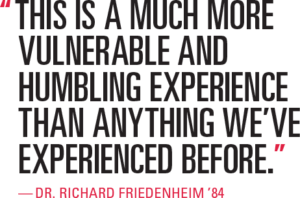 One of the physicians, Friedenheim, who specializes in pulmonary, critical care, and sleep medicine, has been working a seven days on, seven days off schedule, putting in 12-hour days since early spring to keep pace with the volume of COVID-19 admissions. He’s treated patients from age 29 to 95 suffering from the disease. “It’s been exhausting as you have to don on and don off the PPE while taking care of almost 100% COVID patients in all intensive care units,” he says.
One of the physicians, Friedenheim, who specializes in pulmonary, critical care, and sleep medicine, has been working a seven days on, seven days off schedule, putting in 12-hour days since early spring to keep pace with the volume of COVID-19 admissions. He’s treated patients from age 29 to 95 suffering from the disease. “It’s been exhausting as you have to don on and don off the PPE while taking care of almost 100% COVID patients in all intensive care units,” he says.
Communicating with families also has been a challenge, he says. In normal conditions, families are encouraged to sit with doctors to discuss a loved one’s treatment, but with the highly contagious nature of the novel coronavirus, those difficult conversations take place by phone.
“This is a much more vulnerable and humbling experience than anything we’ve experienced before,” Friedenheim says. “We’re really leaning on each other and our own experiences, and the experiences of our infectious disease division. We’re seeing medicine in a way that we never anticipated.”
Fighting the Storm
Joe Prati ’13, has been combating COVID-19 on two fronts: as an emergency medical technician and as an engineer working in the medical device industry.
Prati leads engineers working around the clock at CytoSorbents Corp. of Monmouth Junction, N.J., in developing blood filtration technologies and scaling up the company’s flagship product, CytoSorb, which is proving beneficial in the treatment of COVID-19.
In April, the FDA approved the temporary commercial sale of CytoSorb in the U.S. for use in intensive care units for treatment of COVID-19. It was determined that the blood filter was effective in treating cytokine storm, a condition where the body’s own immune system overreacts to the coronavirus, leading to more damage than the virus might otherwise inflict.
Treatments of COVID-19 using CytoSorb grew from 70 to more than 750 worldwide in less than a month. “Knowing it’s making a difference has been a very powerful motivator as we get up to go to work while our neighbors shelter at home where it is inherently safer,” Prati says.
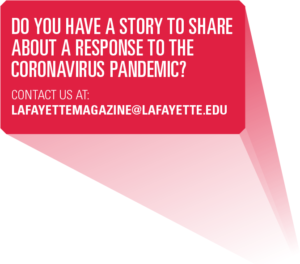 As an EMT officer with Montgomery Emergency Medical Services, he devised a way to use an ultraviolet light chamber to decontaminate masks and gear. The process extends their useful life and preserves valuable stockpiles of personal protective equipment.
As an EMT officer with Montgomery Emergency Medical Services, he devised a way to use an ultraviolet light chamber to decontaminate masks and gear. The process extends their useful life and preserves valuable stockpiles of personal protective equipment.
“This pandemic has brought out the best in our community, in terms of an outpouring of support for their first responders,” Prati adds. “Much of the PPE we use today had been donated by members of the community who had some to spare.”
Helping Her Neighbors
As a first-year medical student at University of Michigan, Kenzie Corbin ’18 instinctively turned her attention to the homeless when campuses nationwide canceled in-person classes and the expanding health crisis amplified the importance of personal hygiene.
“Patient care is the main reason why I’m here, and when there’s a crazy thing like this huge pandemic, the first thing I want to do is help people,” Corbin says. “I pause and think about who are the most vulnerable.”
As the number of coronavirus cases rose, Corbin realized that some members of her community lacked access to not only health care and shelter, but also to basic self-care supplies. She went on a mission to gather hand sanitizer and distribute it to those in need. With the product widely unavailable, she quickly realized she would have to make her own from scratch. With necessary ingredients in short supply, Corbin tapped fellow students who responded with generous donations. That has resulted in more than 850 bottles of hand sanitizer, totaling over 20 gallons, which have been distributed in little packs with masks to the Ann Arbor/Detroit community.
Corbin, a Pepper Prize recipient who hopes to workin the nonprofit public health sector after medical school, plans to continue her hand sanitizer project as long as supplies are available.

Changing gears and adapting their work to answer the call
Leading Logistics
A Philadelphia-based distribution company under the leadership of two Lafayette alumni is working to refurbish and distribute unused, out-of-warranty ventilators.
Almo Corp. is using its national logistics network to ship ventilators to and from a California manufacturing facility for refurbishment and out to state agencies and hospitals. Almo distributes appliances, consumer electronics, audio-visual equipment, furniture, and housewares. It operates more than 2.5 million square feet of distribution space in eight strategically located warehouses throughout the United States.
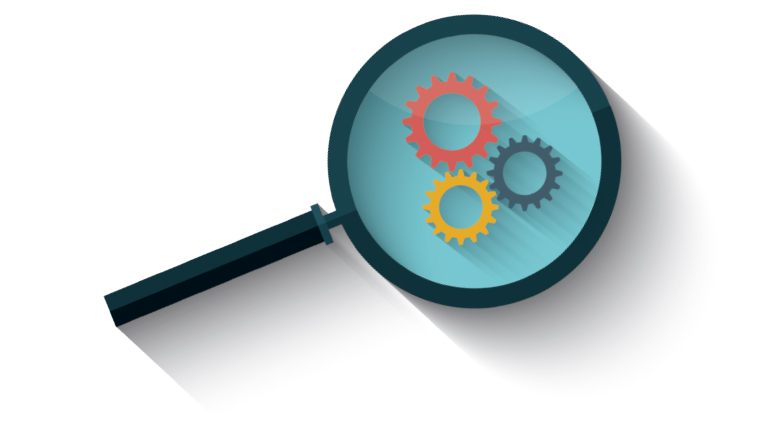
“Our focus has always been on family—the health and safety of our local community and people of this nation is our priority now,” says Warren Chaiken ’88, president and CEO of Almo Corp.
Chaiken has worked with Ed Gibbons ’88, Almo’s executive vice president, for the past 24 years. They met and befriended each other on their first day at Lafayette. Chaiken lived in Ruef Hall 102, Gibbons in Ruef Hall 103.
“We became friends from day one and joined the same fraternity (Theta Chi),” says Gibbons, whose wife, Kim Checkur Gibbons ’88, and son, Casey Gibbons ’17, also went to Lafayette. “Lafayette was a special place that had a special impact on our development, both personally and professionally. We learned the importance of education, social skills, and giving back to the community.”
Stepping up with Supplies
Kravet Inc., a renowned Long Island home furnishings company, knows all about rising up in time of need. During World War II, it supplied the U.S. military with mohair and heavy wools used to add strength and sturdiness to the interior of military vehicles.
Kravet has stepped up again, this time donating fabric for face masks and making them from fabric samples in its warehouse operations in the fight against COVID-19. More than 11,000 masks have been sent to hospitals, nursing facilities, and front-line workers in North America.
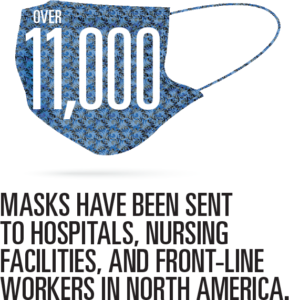 A fifth-generation family business headquartered in Bethpage, N.Y., Kravet has donated and shipped 2,100 yards of tightly woven cotton fabric to facilities that have altered their manufacturing processes to make much-needed face masks for medical professionals, first responders, and patients on the front lines of the pandemic.
A fifth-generation family business headquartered in Bethpage, N.Y., Kravet has donated and shipped 2,100 yards of tightly woven cotton fabric to facilities that have altered their manufacturing processes to make much-needed face masks for medical professionals, first responders, and patients on the front lines of the pandemic.
Ellen Kravet Burke ’76, Kravet Inc. co-principal and executive vice president, says the fabric donations and mask production will continue as long as the need exists. “They’re all facing emergencies, working long shifts and in need of basic equipment to help keep them safe,” she says.
Advocating for Health Equity
Khadijah Mitchell, Peter C.S. d’Aubermont, M.D., Scholar of Health and Life Sciences and assistant professor of biology, is co-leading a Pennsylvania Department of Health (PA DOH) task force committee aimed at helping to mitigate the impact of COVID-19 among racial and ethnic minority groups.
Scientific data shows that racial and ethnic minority groups tend to have higher mortality rates from COVID-19. In order to address that disparity and create health equity across the state, the PA DOH Office of Health Equity (OHE) organized a COVID-19 Health Equity Response Team.
Mitchell was asked to co-lead the group because of her extensive experience researching health disparities. Mitchell has spent most of her career investigating why African Americans have higher incidences of lung cancer compared to European Americans. In recent years, she expanded her research to study kidney cancer disparities.
The Health Equity Response Team’s charge is to create evidence-based strategies and recommendations that can mitigate the effects of COVID-19 in marginalized populations across the 67 counties that make up the state. There are 12 committees; Mitchell’s is focusing on racial and ethnic minority populations.
“We are working to try to reduce health disparities and achieve health equity—everyone needs to have their health needs met and to be as healthy as possible,” Mitchell says. “It’s working to empower communities with education and the tools they need to protect themselves. It’s challenging but very rewarding, and I feel honored and humbled to have this role.”
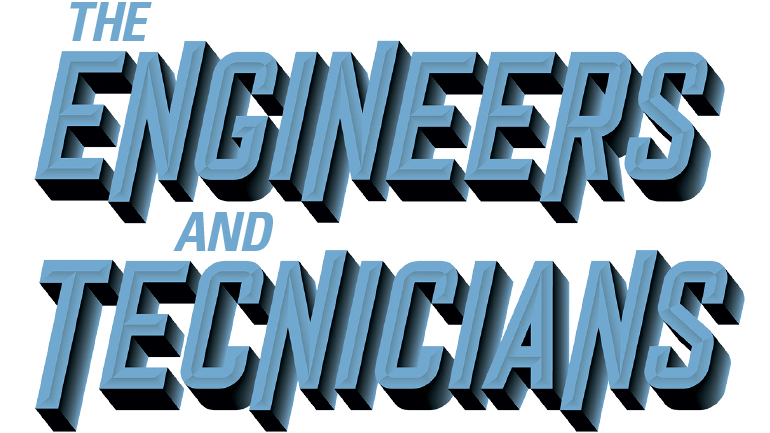
Using expertise and know-how to support others
Engineering Medical Equipment
Lafayette Engineering Division has been doing its part in the broader community effort to supply needed equipment to local medical professionals.
The 10 3D printers from LeopardWorks in Acopian Engineering Center have been producing disposable stethoscopes and face shields since April. By the end of May, 500 stethoscopes had been delivered to St. Luke’s University Health Network, and 650 shields were divided among Easton Hospital, Lehigh Valley Health Network, the Easton police and fire departments, and other community organizations.
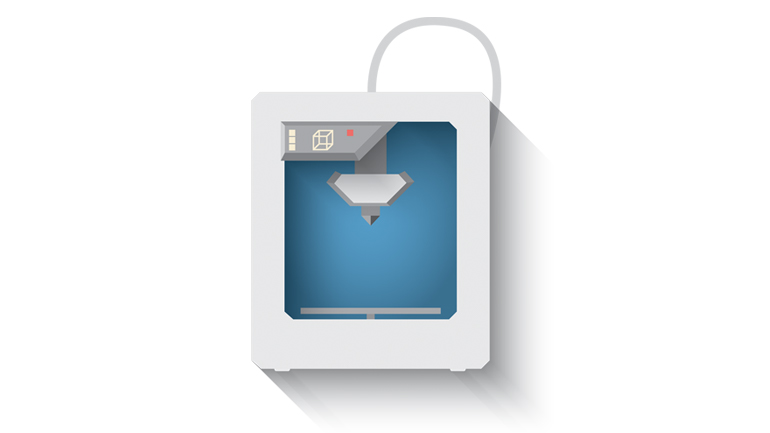
“Being able to contribute in any way to fighting this pandemic feels great, especially since many of us are working remotely and feel helpless to the situation, as a whole,” says Adam Smith, engineering technician, who assists faculty and students on research and design projects.
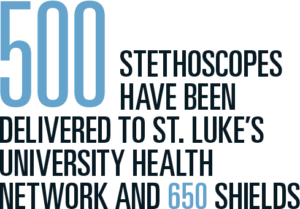 Five of the LeopardWorks printers are at Smith’s home, producing stethoscopes, and the other five are turning out face shields at the home of Marvin Snyder, supervisor of the engineering shop. Brent Utter, assistant professor of mechanical engineering, Joe Woo, assistant professor of chemical and biomolecular engineering, Jon Macasevich, library technology specialist, and Yusuf Dahl, Bradbury Dyer, III ’64 Director for Innovation and Entrepreneurship, joined the effort soon after with their 3D printers. Colt Houser, accounting technician, civil and environmental engineering, hustled around at all hours of the day to source materials.
Five of the LeopardWorks printers are at Smith’s home, producing stethoscopes, and the other five are turning out face shields at the home of Marvin Snyder, supervisor of the engineering shop. Brent Utter, assistant professor of mechanical engineering, Joe Woo, assistant professor of chemical and biomolecular engineering, Jon Macasevich, library technology specialist, and Yusuf Dahl, Bradbury Dyer, III ’64 Director for Innovation and Entrepreneurship, joined the effort soon after with their 3D printers. Colt Houser, accounting technician, civil and environmental engineering, hustled around at all hours of the day to source materials.
In addition to the medical equipment, the College has made other donations from its labs, including N95 masks, material masks, face shields, goggles, gloves, and disposable lab coats.
Keeping the College Connected
Lafayette’s Information Technology Services (ITS) and Center for the Integration of Teaching, Learning and Scholarship (CITLS) came together to provide the technology necessary to make the shift to remote instruction. They also have made themselves fully available for those faculty and staff members seeking guidance.
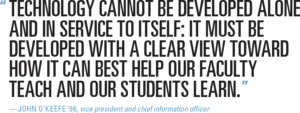 “During the spring semester, staff from ITS collaborated with CITLS and the library to not only support changes in pedagogy that enabled remote learning, but also to develop new and novel technical capabilities,” says John O’Keefe ’96, vice president and chief information officer. “From lecture and lab recordings to designing a do-it-yourself document camera at home using a smartphone, cardboard, and rubber bands, creative solutions were invented in real time and in short order.”
“During the spring semester, staff from ITS collaborated with CITLS and the library to not only support changes in pedagogy that enabled remote learning, but also to develop new and novel technical capabilities,” says John O’Keefe ’96, vice president and chief information officer. “From lecture and lab recordings to designing a do-it-yourself document camera at home using a smartphone, cardboard, and rubber bands, creative solutions were invented in real time and in short order.”
The partnership with others across campus highlighted the way in which the College community came together to overcome the challenges presented by COVID-19, and also demonstrated how important it is to integrate technology with teaching methods. “Technology cannot be developed alone and in service to itself: It must be developed with a clear view toward how it can best help our faculty teach and our students learn,” he says.

Taking action to help others
Nourishing Each Other
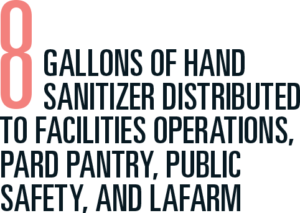 Pard Pantry, a supplemental grocery program, was created in the fall by the Equity and Inclusion Committee of Student Government to help reduce food insecurity on campus. It has been a vital resource for students who have remained on campus during the health crisis. “Of the 200 students on campus, a third of them use Pard Pantry regularly,” says the Rev. Alex Hendrickson, college chaplain. “We see 60 students a week come through the pantry. The shuttle is not running, and stores are out of reach. For international students unable to get home, this helps with financial needs. We don’t have work-study now, so many students can’t afford personal care items.” The campus community has responded by sending gift cards, in-kind donations, and food and personal care products. “People have been so generous,” Hendrickson says. “When supplies dwindle, an alarm goes out, and within a couple days we have lots of things again.”
Pard Pantry, a supplemental grocery program, was created in the fall by the Equity and Inclusion Committee of Student Government to help reduce food insecurity on campus. It has been a vital resource for students who have remained on campus during the health crisis. “Of the 200 students on campus, a third of them use Pard Pantry regularly,” says the Rev. Alex Hendrickson, college chaplain. “We see 60 students a week come through the pantry. The shuttle is not running, and stores are out of reach. For international students unable to get home, this helps with financial needs. We don’t have work-study now, so many students can’t afford personal care items.” The campus community has responded by sending gift cards, in-kind donations, and food and personal care products. “People have been so generous,” Hendrickson says. “When supplies dwindle, an alarm goes out, and within a couple days we have lots of things again.”
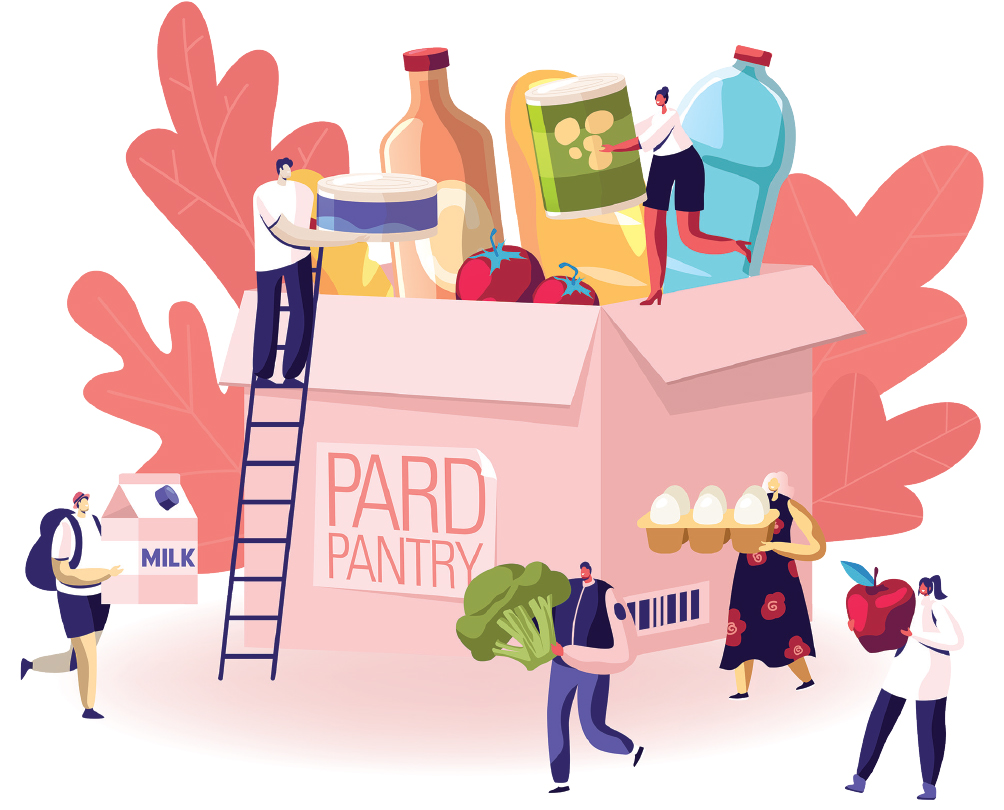
Staff and faculty have helped fill the pantry, including Jessica Carr, assistant professor of religious studies, who, with her mom and cousin’s wife, sewed face masks, and Yvonne Noonan, hazardous materials technician and chemical stores manager for the chemistry department, who made 8 gallons of hand sanitizer.
Bridging a Gap
Like college students everywhere, Louisa Rose ’23 (engineering studies, minor in data science) found herself at home, with surplus time on her hands, when the campus closed in mid-March.
At the same time, millions of elementary and middle school students were transitioning to online learning. Her “aha” moment was to connect these two groups and create GOCOVIDCONNECT, a first-of-its-kind free online tutoring service. “I’ve always had an entrepreneurial mind and have always wanted to start my own company,” Rose says. “What is so great about GOCOVIDCONNECT is that you can give back virtually in a meaningful way, in a short amount of time. If every Lafayette student signed up for GOCOVIDCONNECT, we could all make such a difference in so many lives.”
Assisting Students in Need
A group of young alumni, led by Imani Ford ’18 and Jovante Anderson ’19, created LafAlumniHelps, an initiative to assist students experiencing financial strain as a result of COVID-19. Ford and fellow alumni became aware of students who needed resources beyond what the College could support and stepped up to the challenge to fill the much-needed gap.
Helping Easton Nonprofits
In May, philanthropy chairs at the College’s Greek organizations organized a fundraiser to support Family Connection of Easton and Second Harvest Food Bank. During the course of a week, a fraternity and sorority partnered every day to create challenges that featured their members doing outrageous stuff and sharing it on social media. They raised more than $27,000 by holding such wide-ranging fundraisers as an ice bucket challenge, an art auction, a funny throwback photo challenge, and sending heartfelt thank-you letters to health care workers.
Giving the Gift of Life
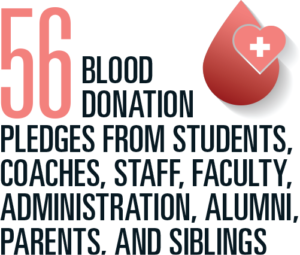 Andrew Venezia ’21 and his men’s soccer teammates wanted to do their part in the battle against the pandemic but without putting themselves and others at risk. Guided by their head coach, Dennis Bohn, and Chelsea Cefalu, assistant director of community-based learning and research at Landis Center for Community Engagement, they partnered with American Red Cross SleevesUp program to hold a virtual blood drive. The student-athletes surpassed their goal of 50 blood donation pledges. Students, coaches, staff, faculty, administration, alumni, parents, and siblings participated.
Andrew Venezia ’21 and his men’s soccer teammates wanted to do their part in the battle against the pandemic but without putting themselves and others at risk. Guided by their head coach, Dennis Bohn, and Chelsea Cefalu, assistant director of community-based learning and research at Landis Center for Community Engagement, they partnered with American Red Cross SleevesUp program to hold a virtual blood drive. The student-athletes surpassed their goal of 50 blood donation pledges. Students, coaches, staff, faculty, administration, alumni, parents, and siblings participated.
Feeding Front-Line Workers
Stephen Sajer ’22, a men’s lacrosse team member, has been raising money to provide meals to those working on the front lines in his hometown of Summit, N.J. He volunteers for Front Line Appreciation Group (FLAG), which has partnered with the Police Athletic League to raise money to purchase meals from local restaurants and deliver them to Summit’s Overlook Medical Center and fire and police departments. Heading into June, the initiative had raised $120,000. “These professionals are not only putting themselves in danger being around this extremely contagious virus, but their families as well,” Sajer says. The program eases their burden and also helps local restaurants.